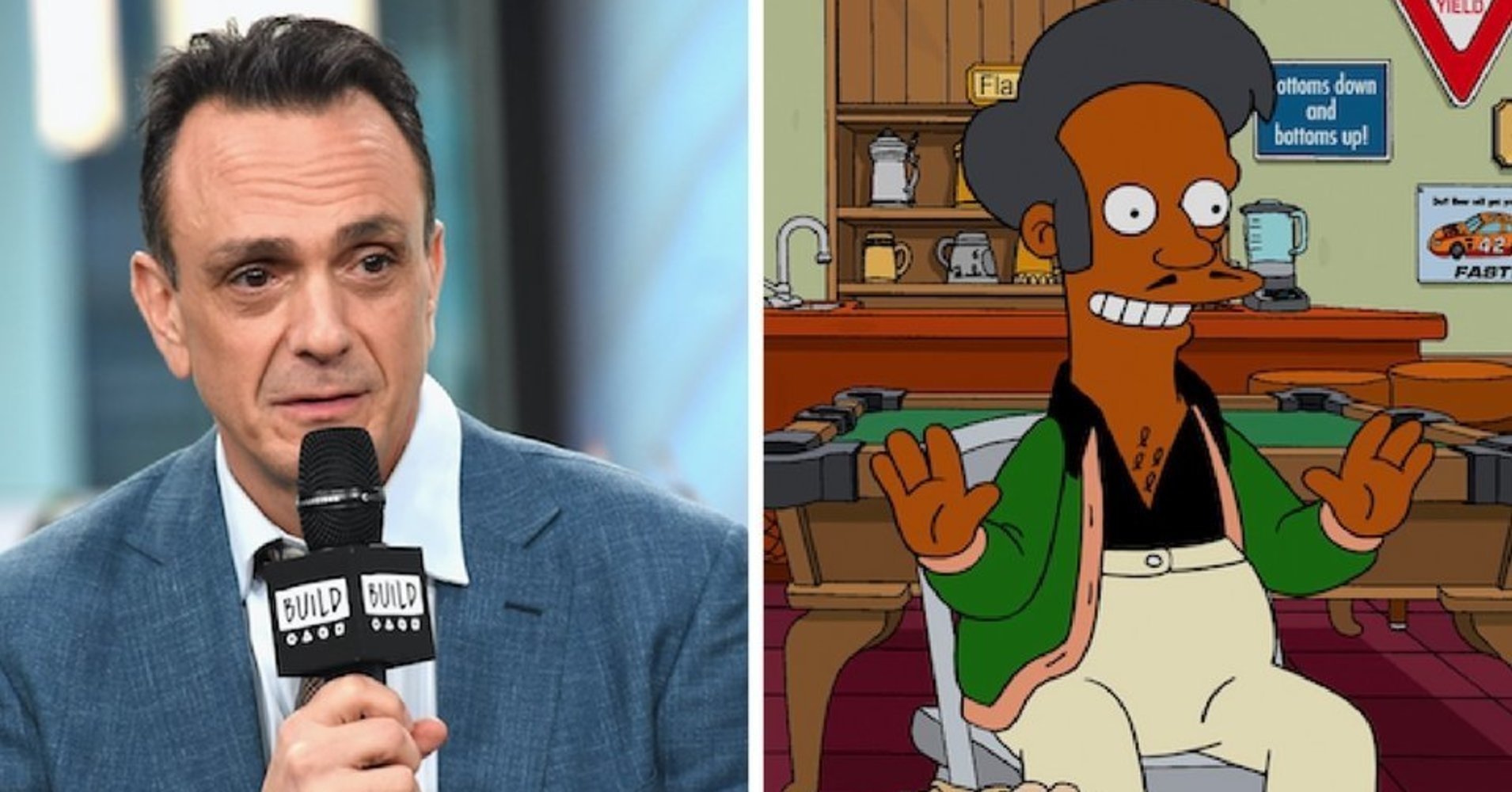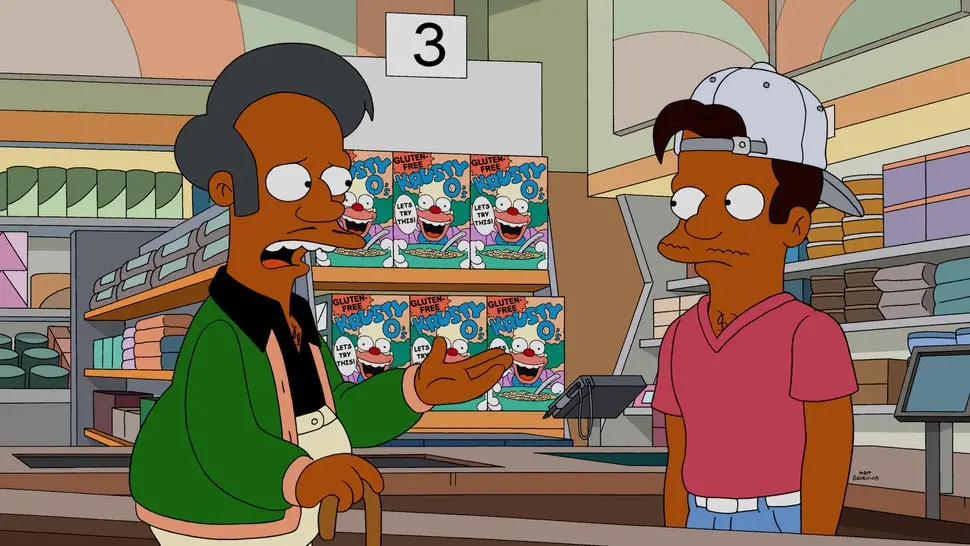In recent years, the lack of representation of minority groups in both film and television has received increased attention in mainstream media.
Films such as “The Lone Ranger” and “Ghost in the Shell” sparked controversy over the white actors that were selected for roles intended for people of other races. Many critics claim racism in Hollywood has allowed these misrepresentations to form and endure.
Misrepresentations can be found in even some of America’s most beloved entertainment, such as the animated sitcom “The Simpsons.”
The show is undeniably full of stereotypes, including the overachieving daughter, the drunken father and the religious neighbor. Furthermore, some argue that because the show makes fun of everyone, no one should be offended.
On the contrary, the stereotypical character Apu Nahasapeemapetilon has been credited with misshaping the perception of ethnic minorities in America. At the time of “The Simpsons” debut in 1989, the popular Kwik-E-Mart store clerk Apu was among the only Indian-American representations.
Comedian Hari Kondabolu, creator of the documentary “The Problem with Apu,” was raised in Queens by two South Asian immigrants. Kondabolu, like many Americans his age, grew up watching “The Simpsons.”
He considers himself a fan, saying “It’s one of the reasons I know you can be smart and funny and political at the same time. It has shaped me into the person and comedian I am today.”
However, Kondabolu admits throughout his life as an Indian-American that he has been haunted by “The Simpsons” character Apu.
He realized he had no choice but to like the Kwik-E-Mart clerk growing up because he was the only Indian-American representation on television at the time; there weren’t actors/actresses such as Aziz Ansari or Mindy Kaling or Aasif Mandvi in the mainstream yet.
With a new understanding of his own prior and loose connection to Apu, Kondabolu decided it was time to discover how and why this stereotypical character has endured for a quarter of a century. In hopes of challenging this representation, Kondabolu declared war on Apu on the FX show “Totally Biased” in 2012.
The comedian began his battle against the character with the creation of the 2017 documentary “The Problem with Apu.” Kondabolu credits “The Simpsons” with making Apu one of the smartest characters in the show.
However, he points out that people liked Apu for his funny accent and not because he exposed the “bigotry and idiocy” of the American perception of the average immigrant — a concept the documentary filmmaker believes defines the problem with Apu’s character.
Kondabolu says that in the “pre-Aziz and Mindy era,” the only representation of Indian-Americans was Apu and terrorists such as those seen in films. In addition, he reminds viewers that there is an entire spectrum of humanity between those two preconceived ideas of Indian people.
“The Problem with Apu” argues that the South Asian TV character has come to reflect how Americans view real-life South Asian immigrants as “surveil, devious and goofy.”
In the documentary, Indian-American actor Kal Penn (known for the TV show “House” and the “Harold and Kumar” films) told Kondabolu “I hate Apu. And because of that, I dislike the Simpsons.”
Kondabolu was surprised to hear Penn’s statement, as he loves the show itself, just not Apu’s character. Penn told Kondabolu that he and many others have not been able to divorce the two.
Many critics, including Kondabolu, credit Apu’s character as a classic American misrepresentation of immigrants and those who are not white. One of the biggest issues surrounding the ethnic character Apu is the man who voices him, white actor Hank Azaria.
“The Simpsons” scriptwriters claim that Apu was not meant to be “ethnic” as it would be a “comedy cliché.” However, when reading his lines, Azaria read the phrase “That’ll be 35 cents” in the now-famous Apu voice which the creators found hilarious.

Despite the plausible explanation on the origin of Apu’s accent, the documentary also shows video footage of Azaria conflicting the statement made by the scriptwriters. In a 2007 interview, he claims that the producers asked him “Can you do an Indian voice, and how offensive can you make it?”
Kondabolu’s documentary further argues that “this is a white man putting on a brown face and a false accent to represent all Indian-Americans… A white guy doing an impression of a white guy making fun of my father.”
The comedian’s suggested solution to the character who some call offensive — from his profession to his accent — is by placing the responsibility on the actor who voices him. “Azaria gives his voice for the character and is the one who can silence Apu,” Kondabolu said.
“The Problem with Apu” creator asked Azaria to meet with him several times for the documentary, explaining how he didn’t want to kill the character of Apu but help develop him. Azaria denied on accounts of not wanting to be “subjected to the mercy of your [Kondabolu] edit.”
However, following the documentary’s release, Azaria publicly stated that it made interesting points and that he and “The Simpsons” creators were working toward a solution. The voice behind Apu admitted to Huffington Post that the documentary was “a lot to digest.”
With Azaria’s open acknowledgment, critics and fans became hopeful when they heard that “The Simpsons” creators were trying to resolve the issue of Apu. However, many felt their first few attempts to be “tone-deaf.”
In Season 27, the writers of the animated show attempted to address the problem with their controversial character by introducing Apu’s Indian-American nephew, who notably lacks his uncle’s accent. In an episode, his nephew bashes the beloved Kwik-E-Mart store clerk for being “stereotypical.”

Nevertheless, while the show ends with the nephew calling out the stereotypes of Apu’s character, the scene then pans to a stereotypical Italian man. Utkarsh Ambudkar, the voice of Apu’s nephew, felt this was the show’s way of saying “see, we stereotype everyone.”
Their second attempt was equally ineffective. In a recent episode, Marge reads Lisa a bedtime story that has been changed to be more politically correct. When Lisa critiques the new story Marge asks, “Well, what am I supposed to do?”
Lisa replies, “It’s hard to say. Something that started decades ago and was applauded and inoffensive is now politically incorrect. What can you do?”
The camera then shifts to a photo of Apu on her bedside table that reads “Don’t have a cow.”
Amid immense backlash for what many called an insensitive and tone-deaf response, “The Simpsons” creators stated that they will strive for a solution that is “more popular.”
While the writers and producers of the animated show are viewing “The Problem with Apu” as an obstacle for the show, others are applauding Kondabolu. South Asian actors told the documentary filmmaker, “This is the way to move forward. You’re creating a blueprint for future generations.”
Somewhere in the middle of all the debate, people are simply proud that more are migrating from the question “What’s the problem with Apu?” to “How do we fix the problem with Apu?”

















